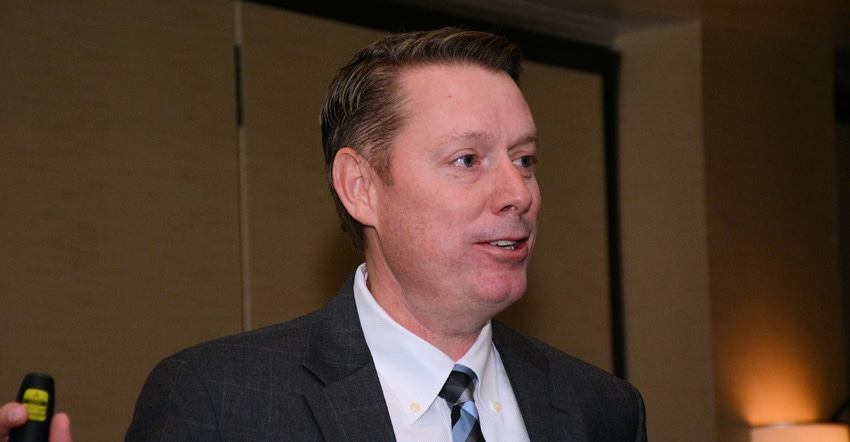Jayson Lusk says "feeding 9 billion" message might be right for those in agriculture but doesn't resonate with urban consumers.

A continuing theme for the agriculture industry is the growing voice of the consumer. The emerging movement has focused on how the current food system is broken and has taken on a predominantly philosophical view that is hostile to innovation, technology and productivity growth. So, according to Jayson Lusk, the question becomes how those involved in agriculture can communicate in an effective way.
Lusk, head of the Purdue University department of agricultural economics, was presented with this year's Borlaug CAST Communication Award. In an event on the sidelines of the World Food Prize, Lusk told how he looks to share an optimistic story about what science and technology can do to increase agriculture's voice in current food conversations.
His most recent book, Unnaturally Delicious: How Science & Technology Are Serving up Super Foods to Save the World, explains how science and innovation are linked with feeding the growing global population.
There is a growing disconnect between those in the agriculture sector and people in urban areas. “If we want to communicate with these folks, it's not really often a conversation about science but on the values of what matters,” he said.
Communicating stories in terms of the values that resonate with urban consumers, such as improvements to the environment, nutrition and efforts to preserve nature, helps connect to those issues perceived as important to this segment of the population.
Lusk also challenged that using the ongoing claim of needing to feed 9 billion people by 2050 as validation of the push to produce more may not be the right message for consumers. It might be the right message in agricultural circles, but it's not as persuasive for consumers.
“We need to feed the world, but it's hard to convince people that it is a core motivating factor,” Lusk said, adding that it might mean using different messages for those within and outside agricultural groups.
As he does in his book, Lusk has tried to share the positive aspects of technology and benefits to consumers. While several food and agricultural technologies are valuable to farmers, it is hard for consumers to see why those technologies are important. Lusk challenged attendees to share those stories through the eyes of the innovators and users to reveal the benefits.
The Global Harvest Initiative also hosted a panel discussion that featured insights on how to communicate with consumers and the desire for increased sustainability.
Doyle Karr, DuPont biotechnology public policy director, said sustainability is often an area where both sides of the discussion can find agreement -- but also disagreement when it comes to the definition of what is sustainable. He said producers and companies can seek to define what sustainable means and offer practical examples or actions to be taken to improve sustainability.
Stewart Leeth, vice president of regulatory affairs and chief sustainability officer at Smithfield Foods, said consumers, especially younger ones, want to buy from a company that is doing something to address some of the world's problems.
Smithfield recently became the first major protein company to commit to reducing its absolute greenhouse gas (GHG) emissions throughout its entire supply chain 25% by 2025. It is partnering with the Environmental Defense Fund and the University of Minnesota to measure and account for those changes.
Leeth said it is difficult to draw people in to talk about the good things companies are doing, but Smithfield's focus has been on trying to increase transparency. He also said the conversation in the American Heartland is different from what's being discussed on the coasts. "We need to stop talking to ourselves and talk to those on the coasts," he said.
Karr said a common thread among discussions with consumers is whom to trust, whether it is the government, media or corporations. The question isn't how to share a better message but how to become more trustworthy.
“Consumers are changing the dynamic,” Karr said, adding that transparency is important, as is finding people who can act as a broker to bring you into contact with a broader audience.
Salley Rockey, executive director of the Foundation for Food & Agriculture Research (FFAR), said 70% of consumers are interested in how their food is made, but of those, 80% don't understand how their food is made.
When looking at changing production practices, it is important to get the science ahead of the changes. “There's always a trade-off when one goes from one production practice to another,” Rockey said.
For instance, FFAR is funding research to try to understand bone breakage in cage-free birds. The move to cage-free systems was due to perceived animal welfare issues, but it has created a challenge in that up to 80% of birds in those systems have broken heels.
“We understand consumers use their wallet as their power. We need to bring forth this information in a way they can communicate and in such a way that they can understand,” Rockey said.
About the Author(s)
You May Also Like





